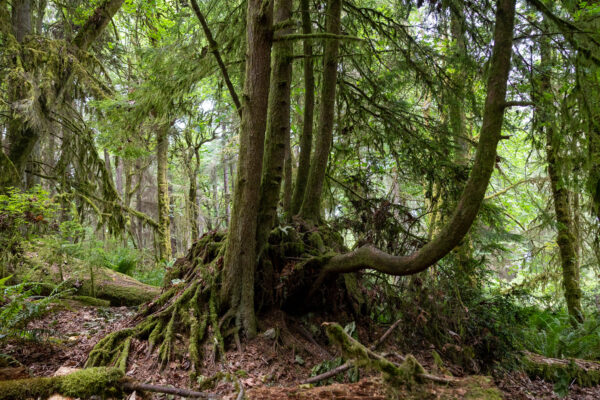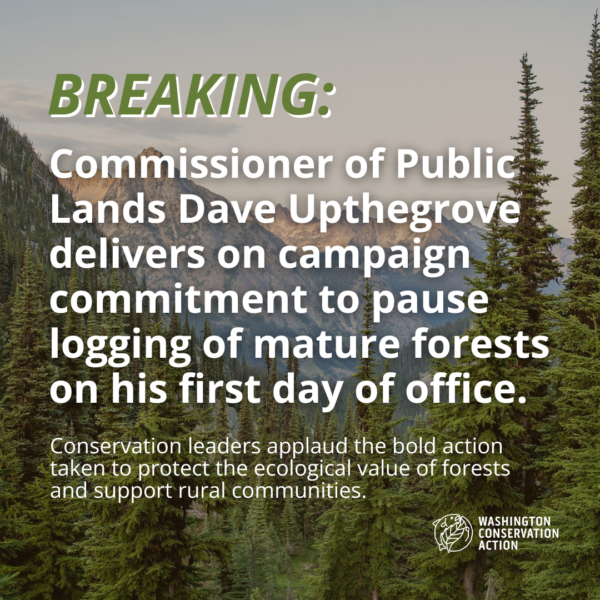Washington’s forests have huge potential to mitigate climate change by storing carbon and protecting water and air quality. On behalf of WEC and the Washington Forest Law Center, the UW Regulatory Environmental Law & Policy Clinic requested that the Board of Natural Resources (BNR) adopt a carbon policy to guide how the Department of Natural Resources (DNR) manages forests in the face of climate change.
From the formal request, “Climate change poses a severe threat to the well-being and livelihoods of all Washington’s residents, and also to the health and productivity of the forests that BNR manages for today and tomorrow’s beneficiaries. Every aspect of forest management affects and is affected by climate change. The impacts are occurring today and are rapidly getting more severe. It is no longer tenable to manage the state’s valuable forests without an express, stand-alone policy addressing the exigent crisis of climate change.”
The BNR currently has no explicit policy on how to incorporate climate and carbon science into decisions on the two million acres of public forest that DNR manages.
As stated in the request, “Without a formal climate or carbon policy, the BNR fails to recognize the value of the sequestration potential of state trust lands and has not adequately guarded these lands against the harmful effects of climate change. Its inaction has therefore endangered the welfare of Washington’s lands and residents.”
“The aims of a BNR climate change policy should be twofold: (a) to protect resources held in trust against the impacts of climate change, and (b) to harness the power of Washington’s state forests to mitigate climate change by sequestering carbon and to gain value from providing such benefits.”


